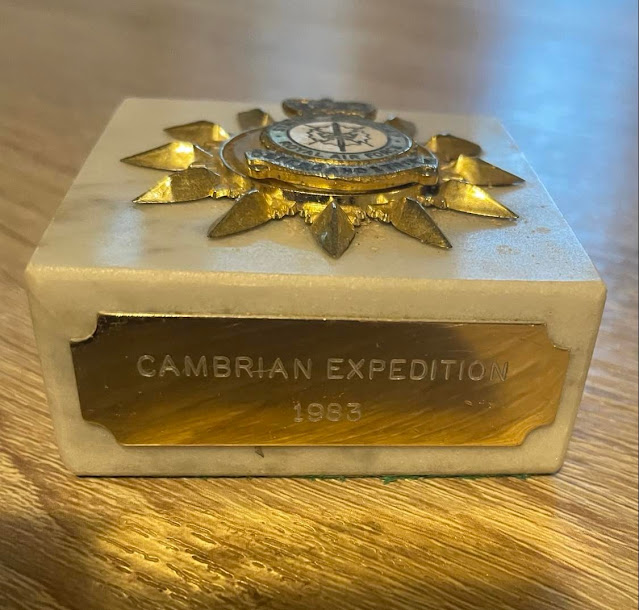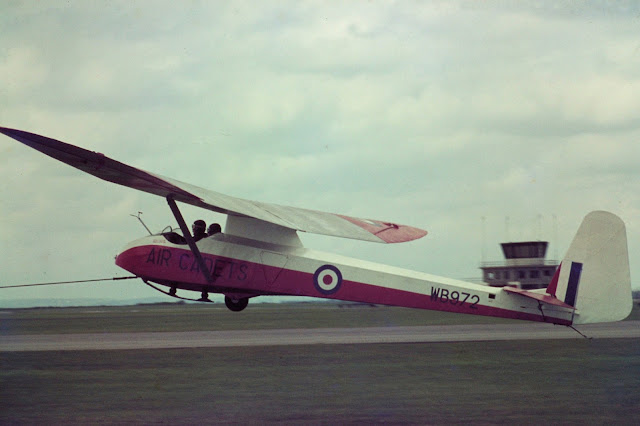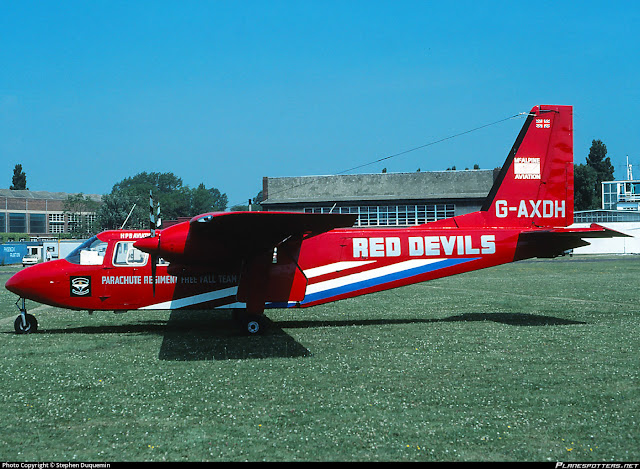Hello folks welcome back to my tale.
Back in the 1970s I used to watch Ski Sunday most weeks and marvel at the speed the skiers went when travelling down the mountain slopes. Coming from a country that rarely had enough snow and from the southeast of England where there were no decent hills, let alone mountains it was just a dream for me to even think about learning to ski.
Once I was committed to enlisting in 1982, I decided that I would resign from my job at Marks and Spencer a couple of weeks before my attesting (at Reading Careers Office) and go to Switzerland to learn the art of skiing down hill. I asked my younger brother if he would like to join me, and he readily agreed. As I previously mentioned my father was a long time employee of British Airways, and one of the perks of working so long ( he started in 1941 during WW2) was that he accrued a number of free staff flights, which his family could also use. The scheme acted like stand-by passengers, so we had to wait in the terminal until the staff knew that there were unsold seats available. We were lucky and managed to get seats on the flight from Heathrow to Zurich.
My brother, Andy, and I bought some basic skiing clothes from our local branch of C & A ( remember them?), and decided that we would hire the rest of the gear ( boots and skis) at the resort. As we were both in the Scout Movement at the time we were going to stay in Switzerland as cheap as we could, and were making our way to the International Scout Centre in Kandersteg in the Bernese Oberland part of the Swiss Alps. We were going to stay in bunkhouse accommodation, and we would help with certain tasks each day (cooking, serving food and a little bit of cleaning), before and after the day on the slopes. It was run on a similar way to a youth hostel.
The International Scout Centre Chalet at Kandersteg
The Centre was at the end of the Kander Valley and we arrived by train all the way from Zurich Airport, with a change at Bern, which is the capital of the Bern Canton. Swiss Railways pride themselves on the punctuality of their trains and we weren't disappointed on our spectacular journey. After leaving Bern, the journey took us to Interlaken which lies between Thunersee and Brienzersee lakes. ( The name of the town describes the location). The train then started a slow climb up to the village passing through several tunnels and looping around to make the climb possible.
The small, traditional Swiss village of Kandersteg is situated at 1'200 metres above sea level, 65 kilometres south of Bern. It is easily reached by road and rail and provides an excellent base for sightseeing or exploring the Alps.
Situated on the main railway line from Benelux/Scandinavia/Germany to Italy, Kandersteg is very well served by fast trains. During the high seasons, a regular bus ran from the local railway station to the Centre.
We enrolled at the local ski school after renting our equipment. I found it harder to stay upright than I thought it was going to be, and in fact Andy was doing much better than me. We were only on the nursery slopes and were learning very basic stuff, like Snowplow turn, and how to stop. We were taken up to one of the slightly harder slopes to practice our new found skills. I was petrified at first as I kept falling over every time I wanted to slow down and change direction.
A fine view of the village while riding the chairlift to the higher ski area
At the end of our week, I felt I hadn't progressed as much as I wanted to but I had better things to do in a few days time, starting my new job and life.
After being posted to Cornwall I didn't feel the need to have a summer holiday, after all where do loads of people go for their summer holiday ? I rest my case !!! Having said that in the service we were allowed 30 days annual leave, so I had to take it at some point, so I decided I would go away in January when everyone else was back at work after the Christmas festivities. Apart from going to the antipodes for more sun shine, the best holiday would be to go skiing again, and as I had tried it the previous year and enjoyed staying at the Scout Centre I looked into what Kandersteg had to offer.
I found out that they had a special deal which included accommodation, and two weeks of ski instruction. As I was still a Scout Leader I was still eligible to attend through membership and of course I still had to factor in the cost, which I found was still affordable to me, so I went ahead and booked the holiday.
I duly arrived in Switzerland in the second week of January and booked into the centre. Also present on the course were about a dozen other scouters from around Europe. I remember there were a pair of twins from Finland and a few from Britain, with a sprinkling from Germany. We all mucked in with cooking meals and clearing up afterwards and being scout leaders were happy to entertain ourselves. Someone had a guitar so we sang quite a few songs around the wood burning stove.
I was glad I returned to to Kandersteg and found the instruction was much better than the previous visit. We had to demonstrate to our teacher what we could already do so that he could put us into different groups according to ability. This was a good move and I found I was able to quickly build on my skills learned the previous time, and then improve on them.
Not quite Olympic standard but I'm still upright
I was soon able to do a parallel turns, and to stop much quicker without falling over. Our instructor got us to the stage of being able to ski from the top of the ski area and back down to the village. I was getting used to riding the ski chairlift, when we were told that the next day we would be going to a different ski area at a different part of the resort. We would be going up to the area in a cable car, which was just down the road from the chalet.
The ride to the Sunnbuel ski area took about ten minutes and once we had arrived at the top we then took a chairlift to the skiing area. It was a large open area which had plenty of scope to have further practice away from the crowds in the previous areawe had been learning. We had a period of instruction, then we were left to practice on our own, so we could come and go at our own pace.
As this was a fairly easy area to practice on, once our instructor felt we were confident enough and able to, he introduced us to the more difficult run which went directly to the village. I found this very challenging in a number of places, but completed it without falling down or breaking any bones.
Another aspect of skiing holidays I enjoyed was the mountain restaurants we visited at lunch time.
I particularly enjoyed eating a hearty bowl of hot Goulash Soup with loads of freshly baked bread and a glass of local beer. Even though it was the middle of winter, the more southerly latitude and altitude made it feel warm enough to sit outside on the balcony to eat our meal. I thoroughly enjoyed my winter break and returned to Portreath refreshed and ready to crack on with whatever the RAF put my way. So for now thoughts of skiing were put on the back burner for another year, but I definitely wanted to return the following year to improve my style.
After the summer of 1983 had passed and the holiday makers had returned home for the season, I started thinking about planning my forth coming visit to the slopes. I went into the office and asked Sgt Clarke if I would be able to take time off in January to have another trip to Switzerland. Unfortunately I was in for disappointing answer. Unknown to me Jack Small, the civvy steward had already booked the first three weeks of January so that he could visit his sister, who lived in the Dutch West Indies island of Aruba.
The course I wished to attend was held at the same time, so I had make new plans about a skiing holiday. In those days we had no option but to go to a travel agent and get a brochure. That was exactly what I did the following weekend, going into Newquay to get a pile of brochures.
I took them back to my room at St. Mawgan and started thumbing through the pages, to see what was on offer. I soon realised that what I wanted was a holiday that was suitable for young single people. This whittled my search down to one company, which I had heard of, but not for organising winter skiing holidays. Their summer vacations had gained a bit of a reputation a rather hedonistic activity for young adults on hot summer get-aways.
You've guessed it CLUB 18 - 30 !
They had a holiday in the first week of February in the Austrian resort of Seefeld which was in the Tyrol. It had hosted the Nordic Cross country and Biathlon events in the 1976 Winter Olympic games. After checking again at work that I could take the time off then, I went ahead and booked my holiday and paid the deposit. I also paid another visit to C & A and bought a new ski jacket, salopettes, and ski gloves. I found out there was a ski exhibition in London, so I drove up one weekend staying with my parents one night, then taking the train to London. In the exhibition hall at Olympia I found a stall selling cheap equipment, and there I found some ski-boots going for a bargain, so I had to buy them. This meant all that I had to get at the resort would be skis and poles and the passes for the lifts.
The holiday soon arrived and I made my way to my parents to leave my car, before taking a train to Gatwick Airport and after boarding the Dan-Air BAC 1-11 settled down for the short flight to Munich in Germany, which was the closest airport to the resort. We boarded the transfer bus which took us over the border into Austria and then to the hotel in Seefeld.
I must point out that this holiday was nothing like the holidays held in the Mediterranean during the summer. For a start it was too cold to run around with little clothing, and of course everyone was there to ski or learn to ski. They did get the clients to meet up in one of the hotels each evening to enjoy bar games, but that was the limit of the fun part of the vacation.
The next day we headed for the ski slopes. I decided that I would have a couple of lessons to brush up my skills after a year away from the slopes. Off I went, and soon enough I picked up from where I left off the previous season. In the group was a young woman who was struggling to get a hang of this skiing lark, and I felt sorry for her, so after the formal lessons had finished I skied over to her and asked her if she would like some help. On further enquiry I found out her name was Jane and she lived in Shrewsbury with her widowed father and worked as a staff nurse. We hit it off straight away and so we began our holiday romance. Jane was also on the 18-30 Holiday but was staying at a different hotel to me. When the evening bar games finished I would walk her to the taxi rank so she could get back to her accommodation.
Unfortunately the week went too fast and we had to make our way back to home in Britain. We boarded the coach to return to Munich Airport, only this time I had somebody to sit next to for the journey. We arrived at the airport and checked our baggage in, only we were on different flights. I was returning to Gatwick, but Jane was on the flight to Manchester Airport.
We had a last hug and a kiss after going through security, and waved goodbye to each other as we went through our individual gates. Jane's flight left first and I watched it taxi away and take off.
I boarded my airplane and set off back to England, but all the way I was only thinking of one thing, the person I had just said goodbye to.
When I got home I still had another week before I returned to Cornwall so I spent some of the time meeting up with my mates and going to the pub. But all the time I was thinking about Jane, and so one day I sat down at home and got out some writing paper and a pen. ( remember writing)? Before we parted company at Munich Airport we had swapped addresses so I knew where I was going to send my note.
I'm not going to bore you with details of what I wrote but all I will say is, in Shropshire a similar letter was being penned addressed to me!
Next time I will talk about what happened next !
See you then,
Rob


















































